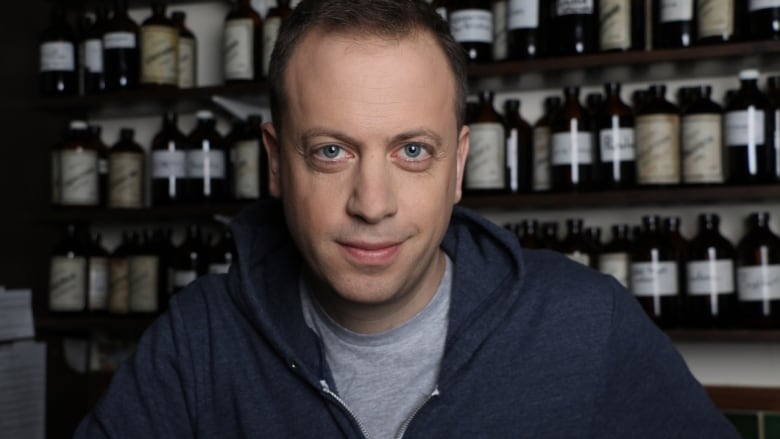Understanding ranked ballots and why Ontario's decision to axe them has some rankled
Province included amendment to do away with ranked ballots in COVID-19 recovery bill

Some people say ranked ballots are a fairer way to conduct elections that also make governments more diverse — but on Tuesday, Ontario introduced a COVID-19 recovery bill that also amends the election act to do away with the practice.
In recent years, London, Ont. has held an election using ranked ballots, and other cities are looking at using them in future elections.
Dave Meslin has been advocating for this electoral reform for many years. He's the creative director of electoral reform advocacy group Unlock Democracy Canada and he spoke with CBC Radio's Ontario Morning host Julianne Hazlewood about the issue on Wednesday.
Q: How do ranked ballots work, and why have you been advocating we implement them?
"They're really simple. They're as easy as one, two three. You rank your choices in order — so who do I want to be mayor, who's my first choice, who's my second choice, and who's my third choice.
In the first round, we just add up the first choices, and if anyone has a majority, it's over. They win. But if nobody has a majority — let's say the person with the most votes only has 30 per cent — then obviously they shouldn't be the mayor necessarily.
So you eliminate the candidate with the fewest votes, and you just transfer those ballots to the second choice on each ballot until somebody has a majority.
Still don't get it? Watch Meslin explain it with fruit — yes, seriously.
And if that sounds familiar, it's because every political party in Canada uses that system to elect their own leaders, including a guy named Doug Ford. So when Doug Ford ran for leadership of the Ontario Conservatives, he won with a ranked ballot. And if you recall in the first ballot, he was not in first place. He was in second place.
So that's kind of the big irony of this whole thing. He's banning ranked ballots across Ontario, despite the fact that he himself uses them."
How would you describe the momentum that has been building around this in different communities in Ontario?
"Well what's so sad about this new legislation is that it'll put the brakes on an incredible amount of momentum. Right now, London, Ont. city council is the only government in Canada that has actually ditched first past the post.
But on the same day they did that in 2018, there were two referendums that were held — one in Kingston and one in Cambridge, asking voters, 'Do you want to get rid of first past the post and switch to ranked ballots?'
And in both Kingston and Cambridge, voters overwhelmingly said yes, we want to switch.
And on top of that, the city councils in places like Barrie and Meaford have said they want to hold referendums in 2022, and a bunch of other cities including Burlington and Guelph are actively looking at using ranked ballots in 2022.
This legislation forces London to switch back, overrides the results of the Kingston and Cambridge election, cancels the Barrie and Meaford referendum, and prevents any other city from even looking at it."
The province said scrapping ranked ballots will make sure that voting is across the board in municipal, provincial and federal elections. What do you say to that argument?
"That is ridiculous. I think [everyone knows] that there are lot of differences from municipal elections from city to city in Ontario. So getting rid of ranked ballots won't give anyone consistency.
In Toronto, they elect one councillor per ward. In Guelph, they elect two councillors per ward. In some cities they don't even have wards at all, they just elect people at large.
Some municipalities elect a deputy mayor. Some elect a regional chair. Every municipality needs to have the flexibility to create a local system that makes sense for them, because what's best for Windsor is not what's best for Cornwall.
And what's so beautiful about the legislation that we already have is that it lets cities decide if they want to use ranked ballots or not.
What Doug Ford is doing is more of an iron fist approach, saying, 'Well we're just going to ban ranked ballots. No one is allowed to use them anywhere.'"
The province also says that now isn't the time for costly experiments in elections. Is now the time for cities to be planning new ways to hold elections?
"I don't think that's any of Doug Ford's business. I think it's up to the city councils in Kitchener, in Kingston, in Sudbury, to decide for themselves what they want to do with their local elections.
They'll be looking at the experience London had, which by the way, the total cost was two dollars per voter to implement ranked ballots. We're not talking about a really expensive switch here.
Keep in mind, most cities already use scanners and tabulators to count their ballots. You just reprogram the machine. There's no big cost here.
Ranked ballots have such an impact on everything from civility to diversity to having more choice, to ensuring that you have a council with a real mandate. It's such a step backwards for this option to be stripped away from cities."
Answers have been edited for length and clarity.
